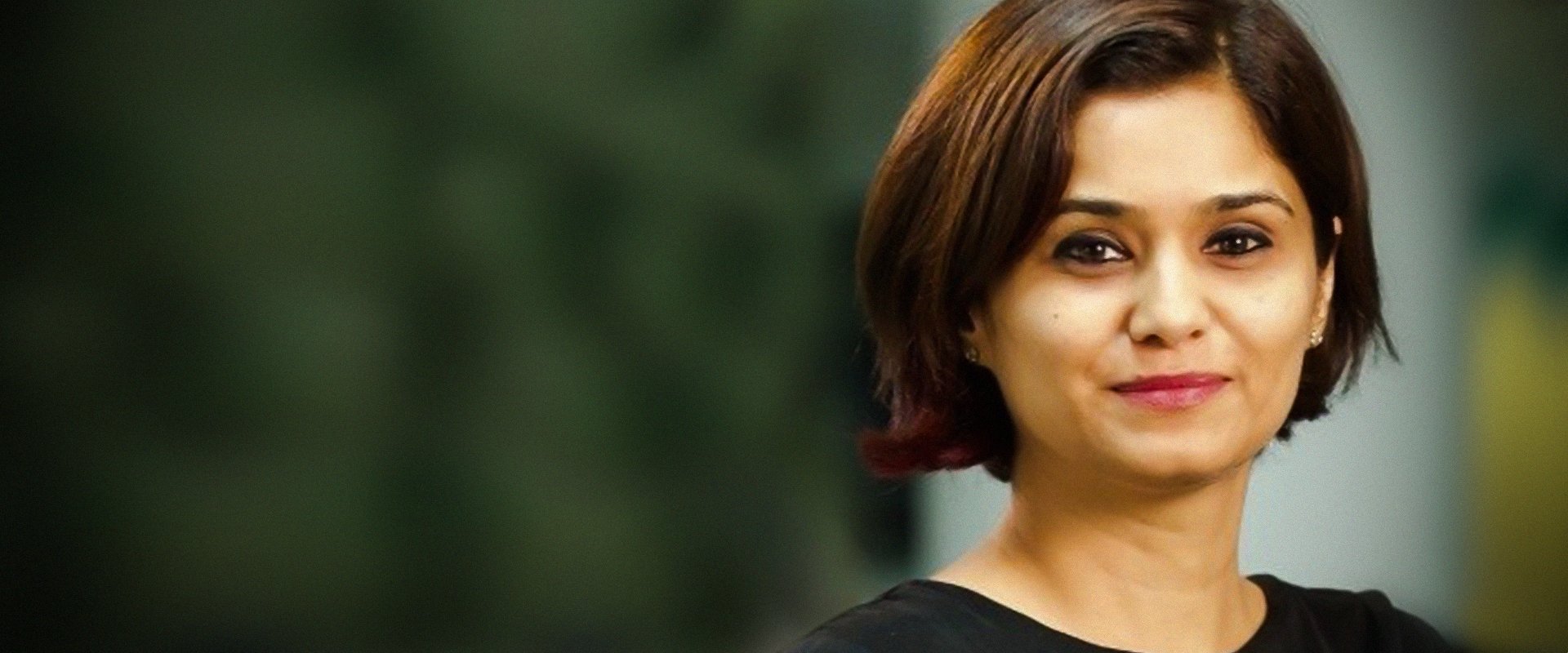
Product
should be the ‘glue’
that brings all functions
together
Join us as we get Up-Close with Ritu Soni, SVP Product at WorldRemit. In this interview, Ritu discusses diversity and inclusion in Fintech, as well as the role that the product function plays in contributing to the success of an organisation.
Your experience in product traces back to the 2000s and the dot-com bubble. Could you give us a whistle-stop tour of your career to date?
Absolutely, I started my career in India, cutting my teeth on a variety of ventures in B2C and B2B marketplaces. Those years were sprinkled with a fair bit of failure as we built complex waterfall solutions and timed it perfectly with the dot-com bubble burst! I am very grateful for the lessons learned that eventually helped me bootstrap my own B2B2C startup.
Then in 2012, I took a sabbatical to reinvent myself at the London Business School. It was a very humbling experience learning from an incredible cohort. Since graduating in 2013, I've been leading Product for fintechs in London - from Wonga, Paylater and Paysafe, to more recently WorldRemit. It's been a whirlwind journey full of twists and turns, and I've cherished every moment.
“I am very grateful for the lessons learned that eventually helped me bootstrap my own B2B2C startup.”

Product is hard! And just like in life, it's not always predictable. The resilience I have been forced to harness in real life helps me reinvent product strategy when propositions lose relevance, experiments fail, or competition strikes. I have also seen that although Product contexts vary across organizations, the common thread is clear - build customer-driven, data-backed, and commercially focused product teams to succeed. Over the last decade in Fintech, I have seen the space become crowded and commoditized. The product must work closely with the wider business to deliver a unique positioning and clear differentiator. This is easier said than done in the absence of patented tech or unique capabilities. I recommend every Product leader knows the answers to the following four questions at all times: Who is the customer? What pain are we solving? Who else is solving that pain? How are we solving it better?
Lastly, I have learned that often, the product is a reflection of the product leader’s personality and mindset. So to build great products, you must have a growth mindset - positive, happy, and accepting of failure. You must also own your own brand - what do you do really well that helps you develop great products? Know it, own it, and harness it! For example, I know I do resilience well.
How has your journey influenced your approach to product?
Diverse teams, by bringing a range of perspectives to the table, are simply more objective. And they innovate better! But alongside inviting fresh voices into the room, the environment needs to be non-discriminatory and inclusive. The gender pay gap, for example, is one such discrimination - I find it heartbreaking that at the rate at which the UK is closing the gender pay gap, my daughters will also spend their entire career being paid less than their male counterparts.
But as leaders, we also need to be wary of subconscious, discriminatory biases and behaviours. A few years ago, while starting a negotiation meeting with our largest partners, where I was the lead point and the only woman in the room - our otherwise very charming CEO turned to me and asked me to make him a cup of tea. So while all the men were sitting and starting to discuss the agreement, I was in the corner of the boardroom making that cup of tea. Needless to say, I struggled to get my voice heard for the rest of the meeting! This scenario is ridiculously exceptional - but hey! There is God in small things. We just need to be conscious and vigilant of such actions, and we owe it to ourselves and others to speak up.
What does diversity mean to you? What goes wrong when a workplace isn’t inclusive?
What do people misunderstand most about product from the outside?
Companies sometimes pigeonhole product management as either a mere project delivery arm or as a catch-all source of all problems and potential solutions, for everything from technical debt to customer success. This thinking can kill morale in the product team, but it can also muddy the water by conflating issues, making it harder to identify where the organizational gaps are. Product can and should be the ‘glue’ that brings all functions together, and it should absolutely look at the entire customer experience. But that is distinct from the product being a universal fix across all functions of a company.
I’m fascinated by this, because I do sense a tension in how we often hear founders and CEOs talk about product. We hear companies say they need a product organization that will serve as a “connective tissue” or “glue.” But then in a paradoxical twist, we hear in the same sentence an insistence that product must recognize they are part of a bigger picture, ready to compromise and see beyond their domain. Can you help us understand this?
Oh, I have strong views on this! I think the key to threading that needle is to recognize that product should rarely have its own functional KPIs but be aligned under the business KPIs - and that’s what makes it unique as a function. In sales, marketing, HR - local KPIs can make a lot of sense. But the notion that product should own some special product KPIs detached from the broader success of the company - I believe that’s a mistake. If the product is succeeding, everyone else in the company is succeeding because we are aligned with company-wide objectives. If we’re building in our own tower while everyone else is drowning, something has gone wrong. So that’s one reading of what it means for a company to be product-first in a compelling way.
“Diverse teams, by bringing a range of perspectives to the table, are simply more objective. And they innovate better!”
It’s quickly become a cliché, and I’m extremely wary of hype cycles(!), but I do think the recent breakthroughs and investment in AI are real, and its impact on fintech will be profound. To be clear, I am not excited by businesses building business cases around AI technology, but I am keen to see how this technology will solve for regulatory and post-purchase customer friction in fintech products, for example in KYC (Know Your Customer) and customer service.
What’s the most exciting thing happening in fintech right now?
Lastly, I know you have some exciting news!
You’re leaving WorldRemit to build again. I won’t ask you to share any hints about your vision just yet, but tell us why now feels like the right time for you to be a founder once more?
Yes! I’m tremendously excited to become a founder once more and solve for a customer pain that is close to my heart. I am currently raising seed funding and would love to share my vision and plans over the coming months.
But for now, I’ll say the decision flows from both professional and personal considerations. On the professional front, I've now amassed over a decade of experience in fintech, and I’ve accumulated a wealth of insights about building products and shaping organisations. I've seen both triumphs and failures, which will prepare me well. Combined with the strong support and guidance from my network, I feel ready to build.
On a more personal note, my daughters are finally ‘leaving the nest’, so to speak! And that puts me in a position where I can once more embrace the risk and enjoy the ride that being a founder involves. The timing is right. Wish me good luck or better sense!

